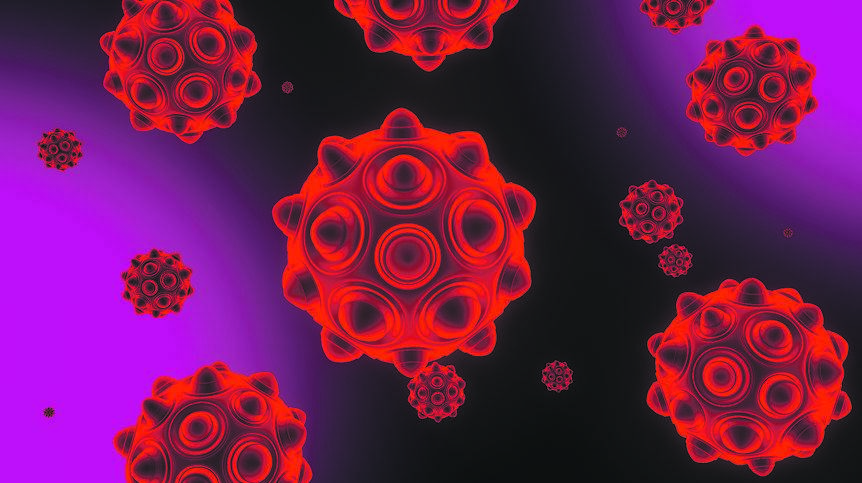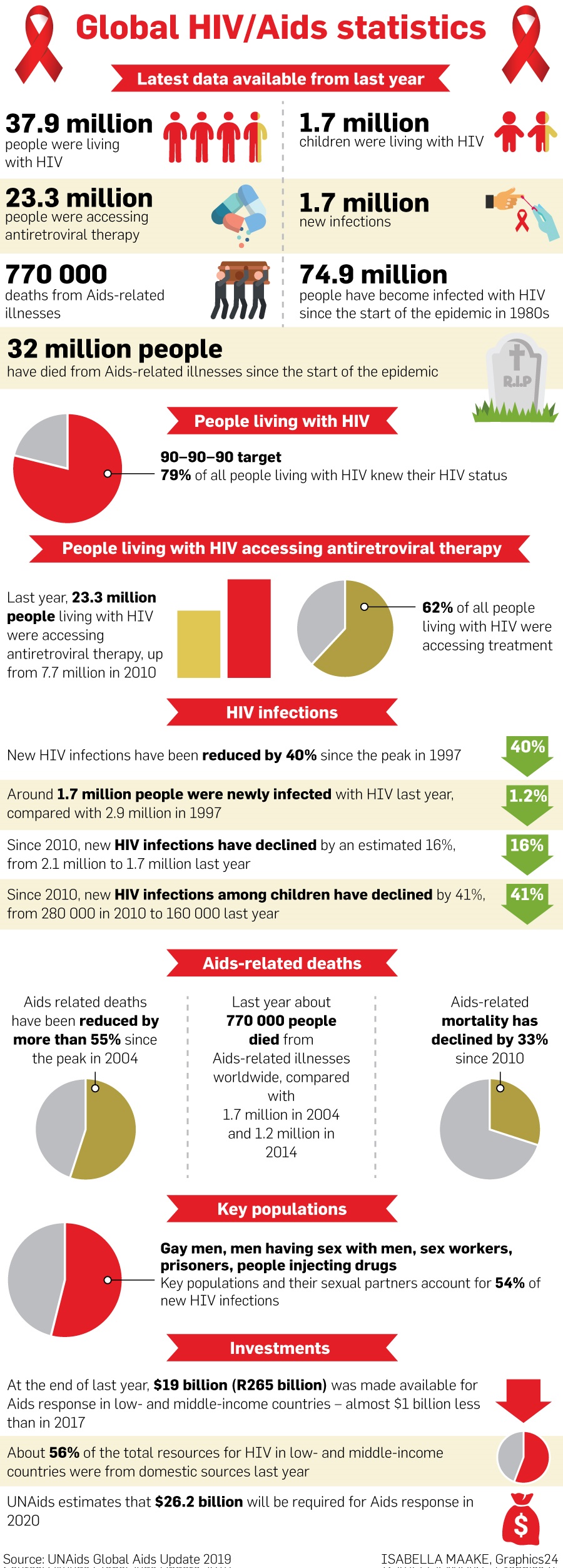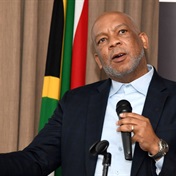
A rural community in Eshowe, KwaZulu-Natal, has got it right.
Just a month ago, an HIV/TB project run by Doctors Without Borders in the area showed it was possible to reach the targets for 2020 set by the UN joint agency for HIV and Aids, UNAids, known as the 90-90-90 targets – 90% of people living with HIV being tested and knowing their status, 90% of those with HIV being on antiretroviral treatment, and 90% of those on antiretrovirals having a suppressed viral load.
But last week, a new UNAids Global Aids Update report, titled Communities at the Centre, was launched at the project site in Eshowe.
It showed that for many more communities around the world, the pace of progress in reducing new infections, increasing access to treatment and ending Aids-related deaths was slowing down.
It also showed that the epidemic was changing.
Last year, more than half of all new HIV infections occurred among so-called key populations – sex workers, people injecting drugs, gay men, men who have sex with men, transgender people and prisoners.
And, instead of progress, increases in new HIV infections were recorded in key populations in eastern Europe, central Asia, the Middle East, North Africa and Latin America.
The target for 2020 is to reduce HIV/Aids-related deaths by 50%, to less than 500 000 deaths a year.
UNAids said it was heading there but there was still a lot to be done.
South Africa, the report noted, had made huge advances by successfully reducing new HIV infections by more than 40%, and Aids-related deaths by about 40% since 2010.
But, the report added, in South Africa alone, 200 teenage girls and young women were infected with HIV each week.
Read: We can't drop the ball on Aids. It affects us all
Doctors Without Borders in Eshowe invested in community-based prevention and HIV-testing strategies, including conducting a door-to-door testing campaign that performed 120 000 tests between 2012 and 2018, and the distribution of 1.35 million condoms.
But the report found that the gap between resource needs and availability was widening.
For the first time, global resources available for the Aids response declined as donors gave less and domestic budgets failed to compensate for inflation.
Peter Ghys, UNAids strategic information director, said: “Aids is not over and we will continue to require a lot of resources as we see the incidence is not reducing as we had envisioned. This is a call on all parties for increased resources.”
 |
| ||||||||||||
| |||||||||||||




 Publications
Publications
 Partners
Partners









